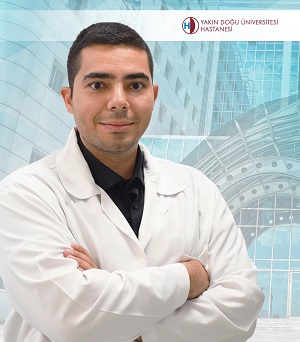
The 76-year-old patient, who has been struggling with the disease known as Achalasia, which causes relaxation disorders in the muscles in the esophagus for 40 years, has tried different treatments in many places so far, but has not gotten any positive results. Despite being fed only liquid foods, the patient, who has been living a poor quality life for years due to the physical pain caused by swallowing difficulties, was unable to receive permanent treatment in the health centers he applied to, including Turkey and England. Finally, the patient was told that he had to learn to live with this disease.
Upon recommendation, the patient applied to the Near East University Hospital and recently was operated by Ahmet Soykurt, and regained his health after 40 years.
Achalasia occurs in one in ten thousand people
Achalasia, which usually occurs with nausea, vomiting, weight loss, burning in the chest, pain and pressure, difficulty in swallowing, food residue and bitter water in the mouth, is diagnosed in one in ten thousand people in our country. Because it is a rare disease, it can be difficult to diagnose.
The success rate of the surgery is over 95%.
It is known that the complaints come back after a while in many patients who used drugs, botox injections and balloon placement in the lower part of the esophagus for treatment. Emphasizing that the definitive and permanent treatment is surgery, Dr. Ahmet Soykurt stated that the success rate of the surgery, which can be performed by a small number of surgeons using the closed method, is over 95 percent.
What should the lifestyle be like after the surgery?
Stating that the patients continue to be fed with soft foods for a few weeks after the surgery, Dr. Ahmet Soykurt also gave information about the habits that should be made into a lifestyle after the recovery process: “Patients can continue to eat soft foods for a while after the surgery and start consuming solid food after recovery from surgery. With solid food consumption, they need to make a habit of chewing food thoroughly, eating slowly, and drinking plenty of water with meals. Eating late should be avoided. It is important to choose a high pillow when sleeping. It is also recommended not to neglect annual follow-ups after surgery.”